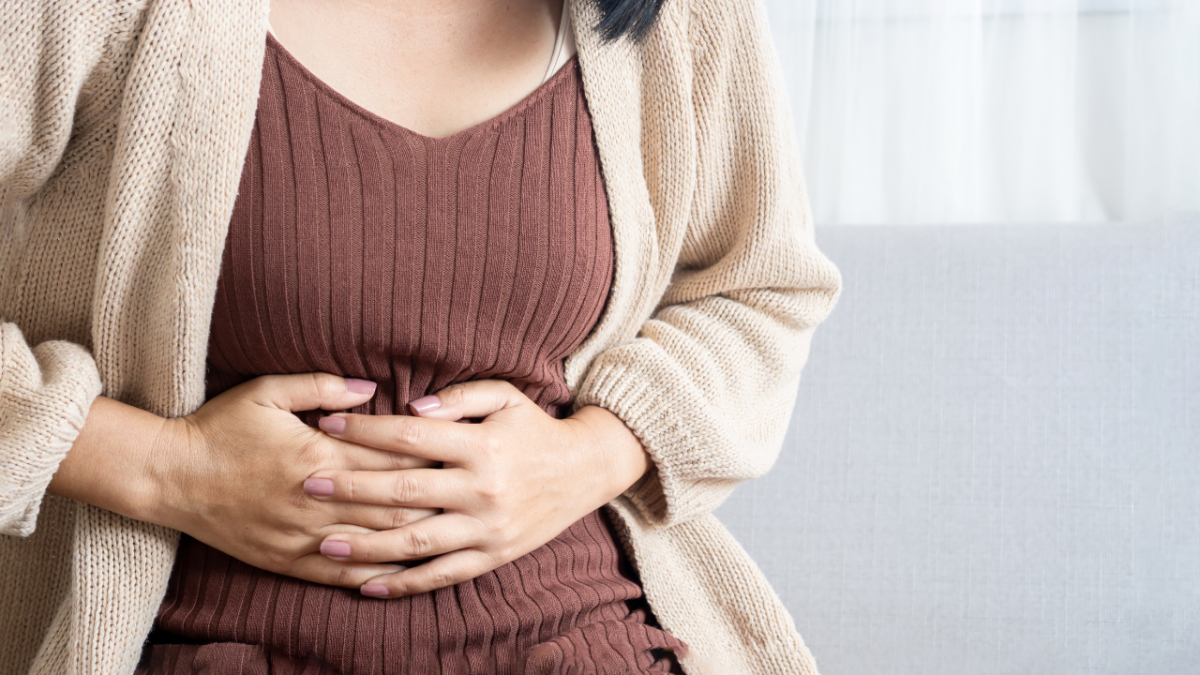Quick Relief for Menopausal Bloating, According to Experts

Bloating during menopause is a common and uncomfortable symptom that many women experience. It can leave you feeling heavy, puffy, and generally unwell. Several factors can contribute to bloating during menopause, including:
- Hormonal Fluctuations: Changes in estrogen and progesterone levels can lead to water retention and slower digestion.
- Dietary Choices: Foods high in salt, sugar, and refined carbohydrates can cause bloating and water retention.
- Slower Metabolism: A natural decline in metabolism can affect digestion and increase the likelihood of bloating.
- Lifestyle Factors: Lack of physical activity, stress, and poor sleep can exacerbate bloating.
Immediate Remedies to Reduce Menopause Bloating
To alleviate bloating quickly, consider these immediate remedies:
1. Stay Hydrated
Drinking plenty of water helps flush out excess sodium and prevents fluid retention. Aim to drink at least eight glasses of water a day to keep your body hydrated and support digestion.
2. Limit High-Sodium Foods
Salt can cause your body to retain water, leading to bloating. Avoid processed foods, canned soups, and salty snacks. Opt for fresh, whole foods that are naturally low in sodium.
3. Eat Smaller, More Frequent Meals
Large meals can overwhelm your digestive system and cause bloating. Eating smaller, more frequent meals can help ease digestion and reduce the risk of bloating.
4. Avoid Carbonated Beverages
Carbonated drinks like soda and sparkling water contain carbon dioxide, which can increase gas in your digestive system. Stick to still water or herbal teas instead.
5. Engage in Light Physical Activity
Light exercise, such as walking or yoga, can help stimulate digestion and relieve bloating. Physical activity encourages the movement of gas through the digestive tract and helps reduce water retention.
6. Increase Fiber Intake Gradually
Fiber is essential for digestion, but a sudden increase can cause gas and bloating. Gradually increase your fiber intake to give your body time to adjust. Include fiber-rich foods like fruits, vegetables, whole grains, and legumes.
7. Identify and Avoid Trigger Foods
Certain foods can trigger bloating and gas. Common culprits include beans, lentils, broccoli, cabbage, onions, and dairy products. Keep a food diary to identify which foods cause bloating and limit their consumption.
8. Opt for Low-FODMAP Foods
The low-FODMAP diet is designed to help people with digestive issues like IBS and can also be beneficial for reducing menopause-related bloating. Low-FODMAP foods include certain fruits, vegetables, grains, and proteins that are easier to digest.
9. Consider Probiotics
Probiotics are beneficial bacteria that support gut health. Consuming probiotic-rich foods like yogurt, kefir, and sauerkraut can improve digestion and reduce bloating. Probiotic supplements are also available and can be a convenient option.
10. Tweak Your Lifestyle
In addition to dietary adjustments, certain lifestyle changes can help prevent and reduce bloating during menopause:
- Manage Stress – Stress can negatively affect your digestive system and contribute to bloating. Incorporate stress-reducing activities like meditation, deep breathing exercises, or spending time in nature into your daily routine.
- Get Regular Exercise – Regular physical activity promotes healthy digestion and prevents constipation. Aim for at least 30 minutes of moderate exercise most days of the week to support your overall health and reduce bloating.
- Practice Mindful Eating – Mindful eating involves paying attention to your food, savoring each bite, and eating slowly. This practice can help you avoid overeating and reduce the amount of air you swallow, which can lead to bloating.
- Establish a Routine – Having a consistent eating and sleeping schedule can support digestive health. Try to eat meals at the same times each day and ensure you get enough sleep to allow your body to rest and repair.
- Quit Smoking – Smoking can cause you to swallow air and irritate your digestive tract, leading to bloating. Quitting smoking can improve your overall health and reduce bloating.
Natural Remedies for Menopause Bloating
Several natural remedies can help alleviate bloating and promote digestive health during menopause:
1. Herbal Teas
Herbal teas like peppermint, ginger, and chamomile have soothing properties that can relieve bloating and improve digestion. Drinking these teas regularly can help keep bloating at bay.
2. Apple Cider Vinegar
Apple cider vinegar can help stimulate digestion and reduce bloating. Mix one tablespoon of apple cider vinegar with a glass of water and drink it before meals to aid digestion.
3. Activated Charcoal
Activated charcoal can absorb gas in the digestive tract and relieve bloating. Consult with a healthcare provider before using it as a remedy, especially if you are taking other medications.
4. Fennel Seeds
Fennel seeds have been used for centuries to reduce bloating and improve digestion. Chew on a teaspoon of fennel seeds or brew them into a tea to help alleviate bloating.
5. Ginger
Ginger has anti-inflammatory properties that can help alleviate bloating. Add fresh ginger to your meals, drink ginger tea, or take ginger supplements to reduce bloating and improve digestion.
When to Seek Medical Advice
While occasional bloating during menopause is usually harmless, persistent or severe bloating can indicate an underlying health issue. Consult with a healthcare provider if you experience:
- Sudden or severe abdominal pain
- Persistent bloating lasting more than a week
- Unexplained weight loss
- Blood in your stool
- Changes in bowel habits
Takeaway
Bloating during menopause can be uncomfortable and disruptive, but it’s often manageable with the right strategies. By making dietary adjustments, incorporating lifestyle changes, and using natural remedies, you can reduce bloating and feel better quickly. If you experience persistent or severe symptoms, seek medical advice to rule out any underlying health conditions. Remember, small changes can make a big difference in your digestive health and overall well-being during menopause.